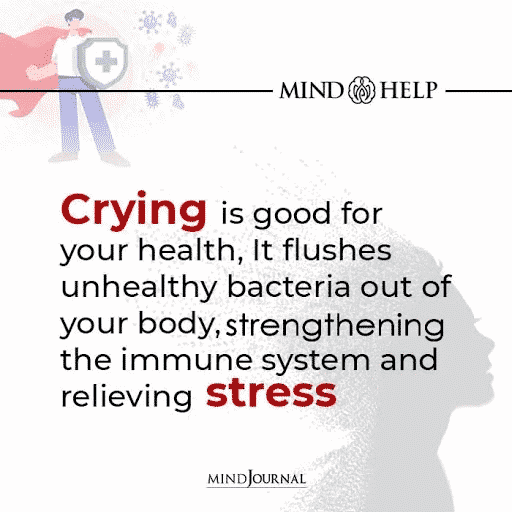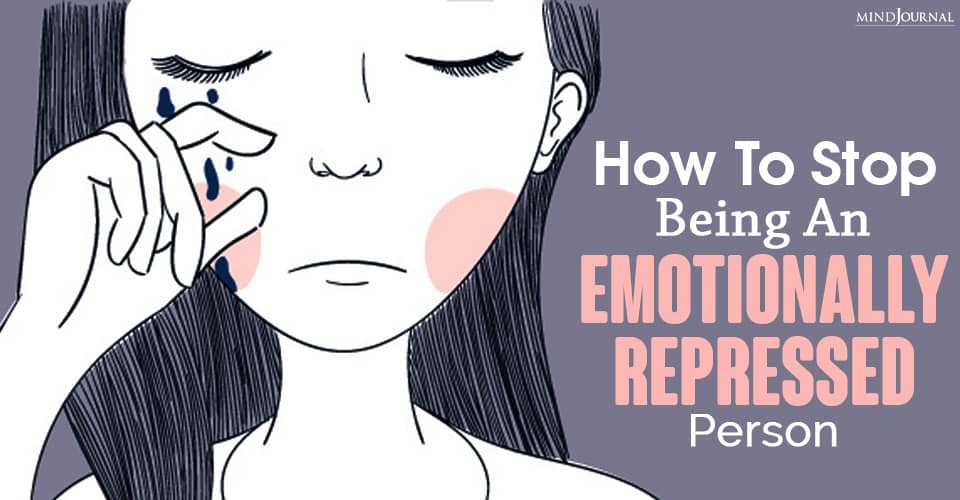If you bottle up your feelings and find it difficult to cry openly and easily, you’re most likely an emotionally repressed person. Read on to know more about crying therapy.
Growing up, I rarely saw my parents cry.
I’ve never once seen my father cry, and have only ever seen my mother cry a handful of times. But you know, I’m not alone in these observations. Many of you would have grown up with very stoic parents like myself, rarely seeing tears of joy or happiness emerge from their eyes.
But of what consequence is all of this? I’m writing this article because I’m on a quest, a quest to make crying something normal, commonplace, and acceptable in my life.
Whether because of parental, cultural, or societal influence, crying has become something swept deftly “underneath the mat”. Crying, to many of us is uncomfortable, awkward, and even embarrassing. It signifies physical weakness in men and emotional fragility in women.
But what is the true weakness here? True weakness isn’t acknowledging your emotions by crying: it’s hiding from them.
Related: 13 Signs You’re Struggling With Emotional Numbness and How To Overcome
Are You Emotionally Repressed?
“The saddest thing is that when you cry, I can hear that you’re still trying to repress your emotions”. These were the words of Sol, after a quiet, turbulent struggle with my emotions, resulting in hot tears and repressed sobs recently.
“Crying is what makes you human. But you’re building all of these emotions up until you explode … Promise me that you’ll cry more”.
Feeling immensely relieved from the inner weight I was carrying in me, I agreed to try, every day. So what now? Now I’m trying to relearn how to cry. Now I’m trying to let my emotions flow freely, unrepressed and unhindered because there’s nothing admirable about being an emotionally repressed person.

If anything, emotionally repressed people create the most strife in the world. Think of the effects that sexual repression has on people and society, and you’ll be given some idea of the havoc that unacknowledged feelings wreak.
Even in my own relationships, emotional repression has built many mounds out of molehills. Think emotional and physical disconnection, moodiness, jealousy, and unnecessary drama over the smallest things.
Signs You Are An Emotionally Repressed Person
But how can you tell whether you’re an emotionally repressed person who is out of touch with their feelings? Here are some clues:

- Difficulty in crying freely and easily.
- Difficulty in laughing heartily.
- Difficulty identifying emotions.
- Difficulty expressing how one feels.
- Difficulty opening up to people emotionally.
- Secrecy. Not sharing very much about your thoughts, opinions or feelings with others.
- Unexplainable moodiness, melancholy or glumness.
- Inability to express strong emotions like anger or sadness.
- Bottling emotions up inside and imploding.
Related: 3 Reasons Why Crying Is Necessary for Healing and Personal Growth
If you share more than a couple of these traits, chances are that you’ve lost touch with your emotions by burying them away.

The Importance Of Letting It All Out
Question: Why are (most) Latino’s so vibrant and charismatic?
Answer: Because they’re in touch with their emotions.
Whether it’s joy, gratitude, anger, sadness, love or lust, Latino cultures, in particular, know how to express themselves. Their raw, rustic and untamed connection with their bodies and hearts is exactly why I respect them so much.
Even the meek and respectful Japanese have their way of “letting it all out”. According to a recent article published in the UK Independent, Japanese businessmen and women have taken to attending sad, weepy movies just to shed a few tears. The Japanese call it the “crying boom”, signifying the rise in popularity of expressing emotions.

Trend or not, to acknowledge our feelings through crying is an intelligent way of living life. After all, why on earth would we have the ability to shed tears if it served no purpose?
Crying, just like laughing, is essential for our well being. But how can we laugh when we’re so jam-packed full of dark and miserable emotions?
We need to learn how to cry before we learn how to laugh. You can’t laugh away your negative emotions. They’re still going to be there, underneath, even if they are diluted.
Related: 7 Scientific Facts About Crying
Crying is a natural way of relieving our ‘tensions’ and our burdens. It doesn’t make our problems disappear, no. But it helps us to deal with our problems in a more level-headed way. In essence, crying helps us to live more lively and self-understanding lives.
It’s essential to acknowledge and express our emotions when learning how to reconnect with our souls.
Written by Aletheia Luna Originally appeared on Loner Wolf Republished with permission












Leave a Reply